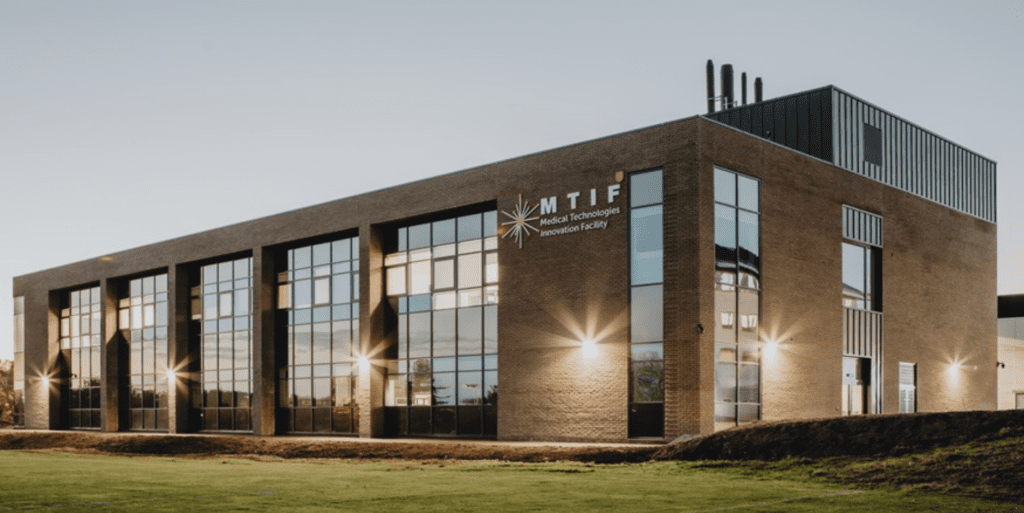A world-class impact accelerator will connect hundreds of East Midlands MedTech SMEs with health and care professionals, academics and the public to drive the design, development and delivery of pioneering rehabilitation technologies.
Nottingham Trent University has been awarded £2.5 million by the UKRI Engineering and Physical Sciences Research Council to lead the project, which is expected to accelerate innovation into health and care pathways and transform how people recover and regain independence and function following injury or illness.
As people live longer and chronic health conditions increase, the demand for rehabilitation technologies, or ‘RehabTech’ is soaring.
The ‘EMERGE’ project – East Midlands Emerging RehabTech Growth Enterprise – will launch the East Midlands as the UK’s ‘RehabTech Valley’, a leading hub for rehabilitation technologies excellence.
The University of Nottingham, Loughborough University and the University of Derby will co-lead, supported by a 30-strong consortium spanning research and innovation, medical and health tech organisations, the NHS, local government and economic development.
The project will connect the region’s cluster of 459 med-tech SMEs, addressing current challenges around slowing productivity, access to skills, clinical partnerships and private investment.
It will create mechanisms for engagement between businesses, academics, the NHS and patients and speed up the development and availability of RehabTech.
It will translate theoretical breakthroughs and proof-of-concept ideas to cutting-edge innovations across areas including sensors and imaging, medical device materials and device design, smart medical wearables, bioengineering, robotics and artificial intelligence.
As well as supporting recovery and helping people to regain their independence, the move is expected to deliver a significant economic impact, boosting regional growth and productivity and enabling SMEs to secure an increasing share of a rapidly growing market.
Work will also involve ensuring public and patient involvement is embedded in activities and projects to best address health inequalities.
There are widening health inequalities in the East Midlands and preventable diseases such as heart disease, stroke and chronic obstructive pulmonary disease are worse in the region’s cities than the UK average.
Despite deprived communities being 60% more likely to suffer long-term health conditions than the richest, they still face significant barriers to accessing rehabilitation services that would speed up recovery and return to work.
The East Midlands is well-positioned to tackle these issues, with the region now considered to be at the forefront of rehabilitation and associated technologies, recognised by the Government’s £105M investment in the National Rehabilitation Centre, which is located in Nottinghamshire and will be run and staffed by Nottingham University Hospitals NHS Trust.
The EMERGE project will be led from Nottingham Trent University’s Medical Technologies Innovation Facility, a dual-site medical devices and advanced materials technology innovation centre.
Professor Richard Emes, Pro Vice-Chancellor Research and International at Nottingham Trent University, said: “This award further supports our ambitions in the theme of Health Innovation where NTU researchers are dedicated to transforming patient and community care outcomes.
“The impact acceleration account will speed the translation of applied research between academic partners and healthcare providers in the region to achieve real-world change for the benefit of patients.”
Seven projects are being funded through EPSRC’s Place Based Impact Acceleration Account (PBIAA) scheme.
EPSRC Executive Chair, Professor Charlotte Deane, said: “The seven projects announced today will harness regional research and innovation strengths to unleash the potential of emerging and existing innovation clusters across the UK.
“Our investment will strengthen partnerships between UK universities, civic bodies and local businesses to create new jobs, improve skills and boost regional economic growth that will benefit places and communities directly.”

